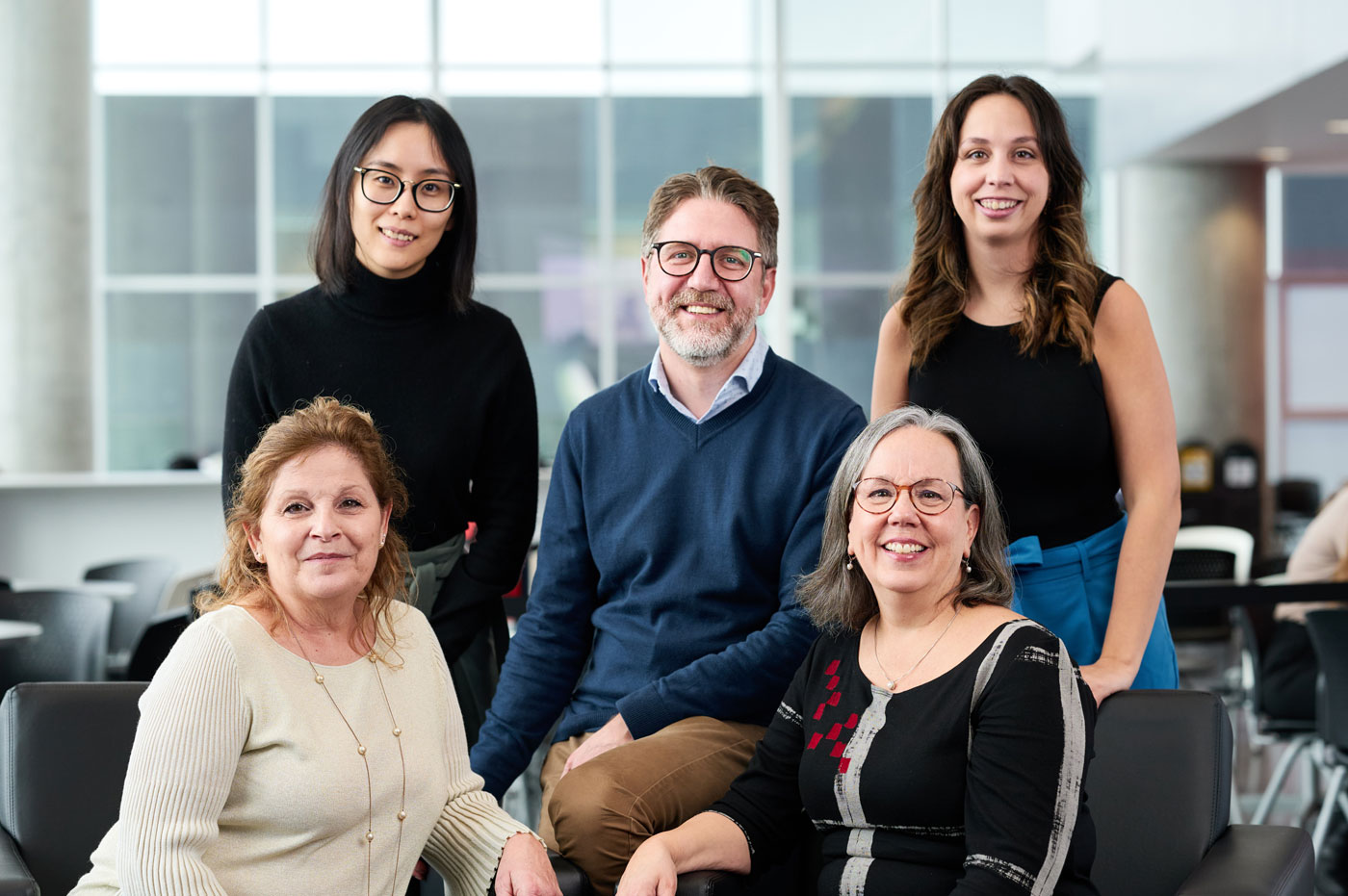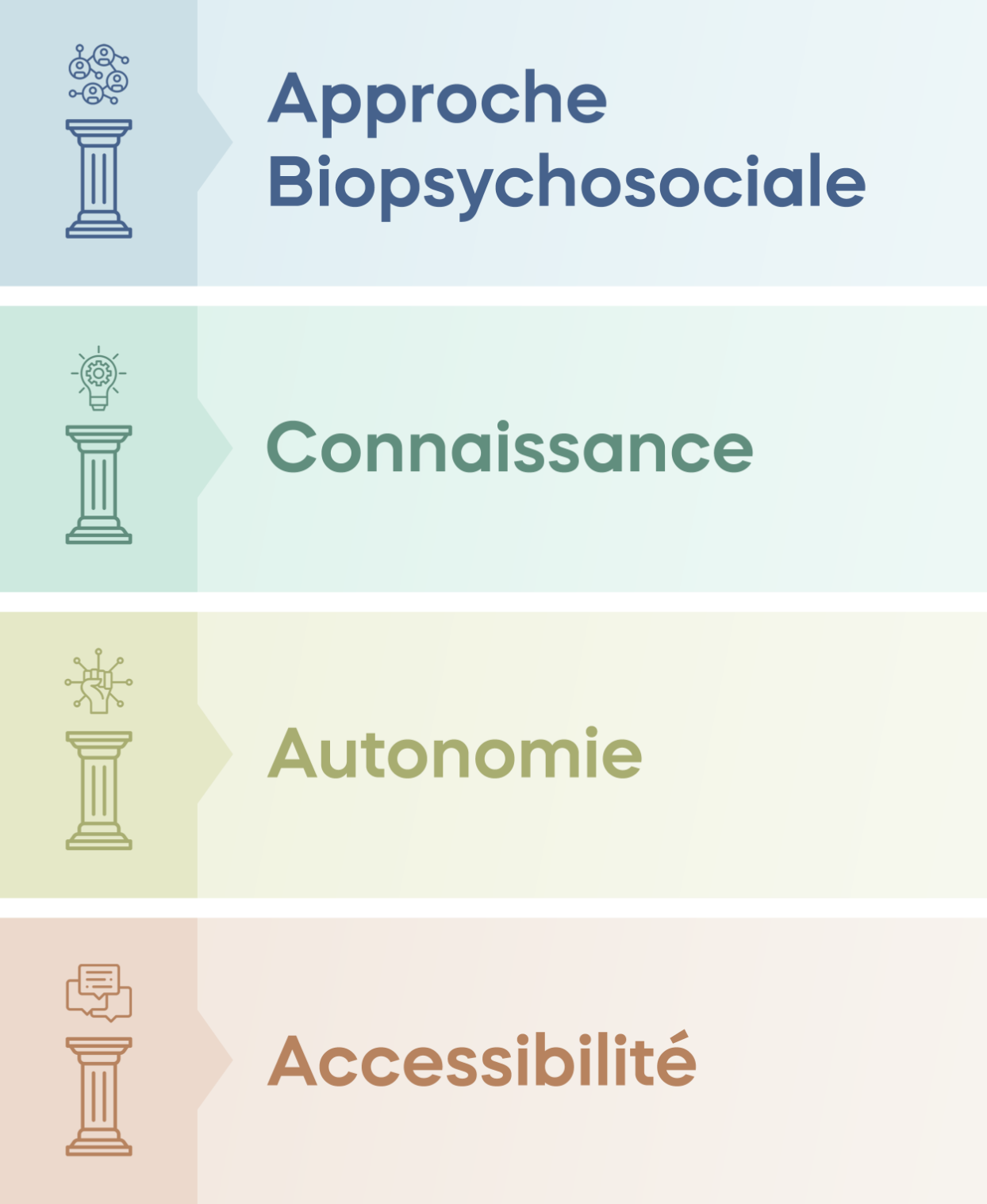Our Mission
The primary mission of the University of Montreal's complex epilepsy transition program (TECUM) is to provide an effective and sustainable transition model for adolescents with complex epilepsy from pediatric healthcare to adult healthcare.
Indeed, this transition can be accompanied by concern and uncertainty as it involves changing the medical team and hospital environment. Therefore, it is important for families and patients to have the necessary support during this crucial period of their lives and to have access to appropriate medical and psychosocial resources during this transition period.

Developing maturity and autonomy regarding their medical condition are skills that the program aims to instill in epileptic patients.
Two major hospitals in Montreal, CHUM and CHU St-Justine, work closely together to provide this optimal transition and ensure the excellence of the program for these young adults and their families.
Our History
From the beginning of their careers, Dr. Mark Keezer, neurologist at CHUM, and Dr. Philippe Major, neurologist at CHU Sainte-Justine, have shown a deep interest in the issues related to the transition of patients between pediatric and adult care, a crucial step in their medical journey. Indeed, their collaboration began quickly due to their common interest in a genetic disease, tuberous sclerosis. Between 2017 and 2020, the epilepsy teams at CHU Sainte Justine and CHUM closely collaborated on a transition program focused on creating a personalized educational program, supervised by clinical nurses.
In 2022, Drs. Keezer and Major, with the support of Drs. Dang Nguyen and Ekat Kritikou, obtained a transformative grant from the TD Bank's 'Ready to Act' program. Thanks to this grant, they are now collaborating with a multidisciplinary transition committee to design a new transition program. TECUM, this new program, aims to maximize the use of available technologies to reach as wide an audience as possible. The TECUM program initially started at the University of Montreal but its vision extends to the provincial and national levels.
The 4 TECUM Pillars
TECUM is a multifaceted program aimed at helping adolescents with complex epilepsy and their families during the transition from pediatric to adult care. This program is intended to be a planned and coordinated process so that the adolescent's autonomy regarding their epileptic condition is promoted. Maturity in managing their medical condition and an adequate understanding of the disease are important for a successful transition. That is why the program aims to provide comprehensive support to these young adults.
CHUM and CHU St-Justine work closely together to provide this optimal transition and ensure the excellence of the program for these young adults and their families.
- The implementation of a comprehensive assessment and support of the patient's biopsychosocial and medical condition
- Providing educational materials to patients and their family/caregivers.
- Supporting the patient's autonomy and assessing the level of preparedness for the transition of adolescents and families.
- Ensuring equitable access to the TECUM program, including minimizing barriers related to socio-economic status, ethnicity, sex, and gender.
Moreover, a transfer kit with all the necessary documentation will be available to them so that the patient and their family clearly follow the course of the transition.
Main Team
Mark R. Keezer MD PhD
- Neurologist, University of Montreal Hospital Center (CHUM)
- Mark Keezer is an adult neurologist and epidemiologist at the University of Montreal Hospital Center (CHUM). He has been the director of the Tuberous Sclerosis Clinic since 2016 and the head of the CHUM epilepsy group.
Role: Director of the TECUM Clinic
Philippe Major MD FRCPC
- Neurologist, CHU Sainte Justine
- Dr. Philippe Major is a pediatric neurologist specializing in epilepsy. In 2008, he established the first Canadian tuberous sclerosis clinic at CHU Ste-Justine. He led the pediatric neurology residency program at the University of Montreal from 2012 to 2018, then was appointed head of the pediatric neurology department.
Role: Co-Director of the TECUM Clinic
Ya Ning Zhao MSc
- Master's degree in clinical research from the Faculty of Medicine and Health Sciences at the University of Sherbrooke. Ya Ning Zhao is a research assistant working with Dr. Keezer's neurology team. Her role includes coordinating the TECUM program.
Role: Research Assistant
Transition Committee
 CHUM Transition CommitteeTop left to right:
CHUM Transition CommitteeTop left to right: Ya Ning Zhao (program coordinator), Dr. Mark Keezer (Research Physician), Vanessa Léger (clinical nurse)
Bottom left to right: Jennifer Damiani (patient partner), Line Beaudet (clinical nurse)
Missing: Melissa Côté (patient partner)
 CHU Sainte-Justine Transition CommitteeLeft to right:
CHU Sainte-Justine Transition CommitteeLeft to right:Dominic Chartrand (clinical nurse), Dr. Philippe Major (Research Physician)
Research Committee
 CHUM Research CommitteeLeft to right:
CHUM Research CommitteeLeft to right: Dr. Catherine Larochelle (Research Physician), Dr. Mark Keezer (Research Physician), Véronique Cloutier (project manager), Ya Ning Zhao (research coordinator)
 CHU Sainte-Justine Research CommitteeLeft to right:
CHU Sainte-Justine Research CommitteeLeft to right: Lucie Côté (clinical nurse), Dr. Philippe Major (Research Physician), Maryse Thibault
Research Projects
Research is important for the development of new knowledge. We have projects and initiatives in epilepsy. Here are a few of them:
- SERVO: The SERVO project is an initiative prioritized by the CHUM Neurology Department to collect biological samples and clinical data. The research results will help us to better understand, monitor, prevent, treat and manage neurological diseases.
- CANOE: Project using administrative databases, including those from Alberta and under development to include those from across Canada in the near future. This project aims to study the factors influencing the care trajectory in epilepsy among thousands of epileptic patients.
- CaTS: An initiative involving 4 centers across Canada, including 2 centers in Quebec (CHUM and CHU Sainte-Justine) and 2 in Ontario (London Health Science Centre and The Hospital for Sick Children). The main objective of the study is to characterize the inflammatory profile that would be associated with the presence of epilepsy and neuropsychiatric comorbidities in people with TSC compared to those without TSC but with epilepsy and healthy participants.
- TSC Alliance: Consists of a clinical database and a biobank of biological specimens. The purpose of this biobank is to allow researchers to use clinical data and their corresponding biological samples to conduct research on tuberous sclerosis (i.e., TSC).









